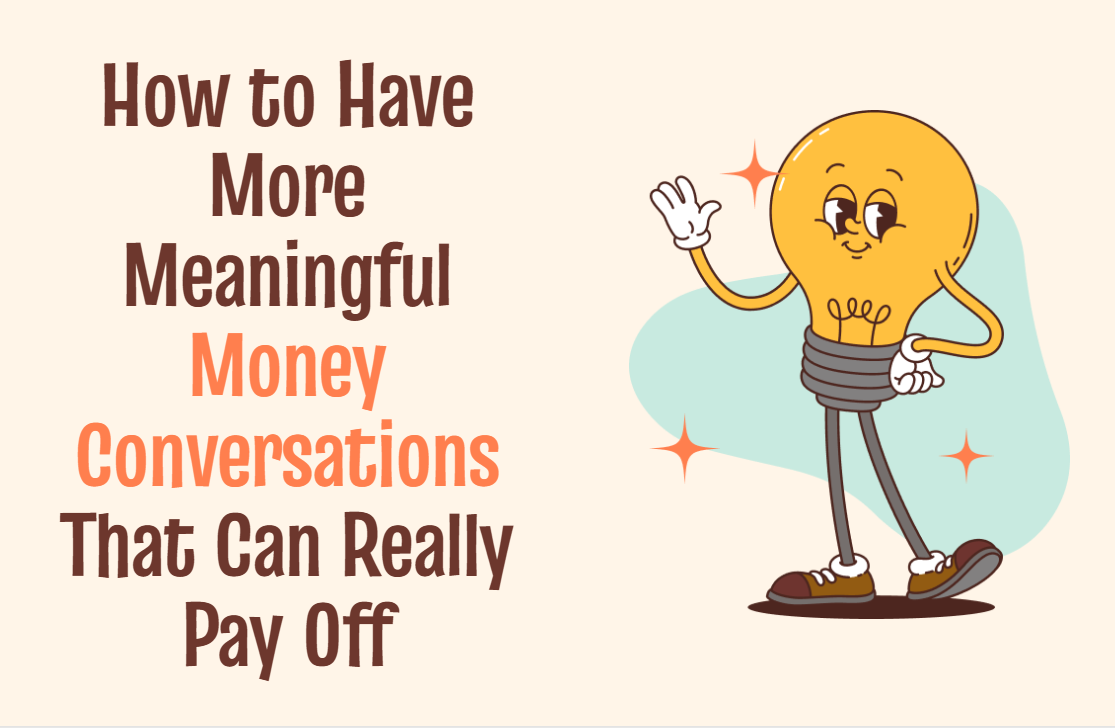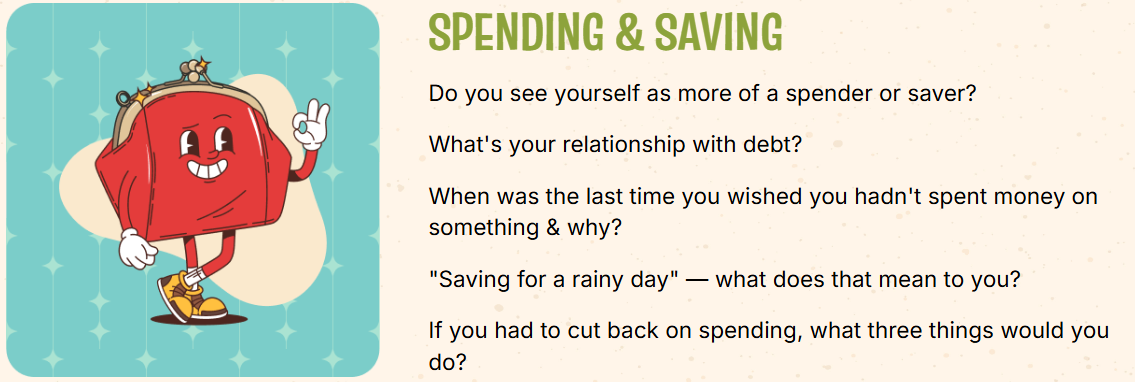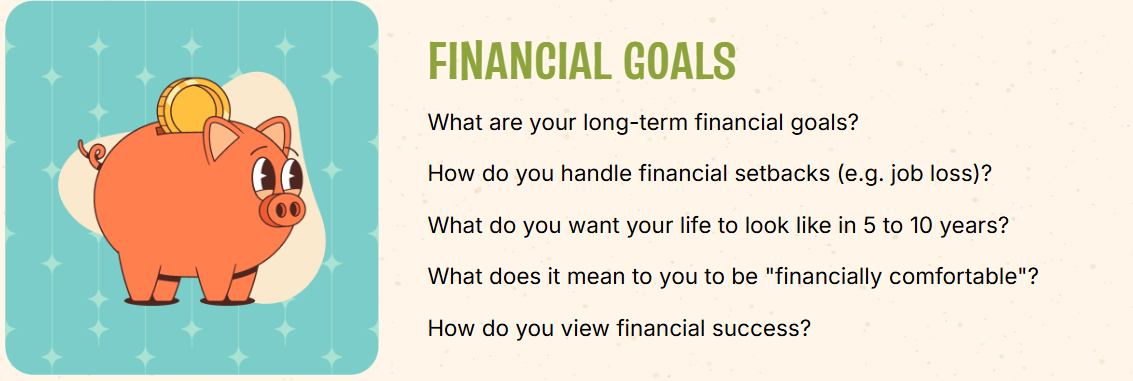
When do you talk about money?
Who do you talk finance with?
If you’re like most people, you’re not discussing money at all — and you’d rather talk about death, politics, and addiction, instead of finance.1, 2
That may be surprising, but it’s not totally out of left field.
Many of us are uncomfortable talking about money because of deeply ingrained cultural taboos. We think it’s rude, showy, and maybe even shameful to bring up finances.2
We may also be worried about being judged for having too much or not enough money.1
So, most of us simply avoid discussing finances altogether, even with the people who we’re closest to.1
That’s a problem.
If we’re not talking about money, it’s easier to slip into bad habits and ignore issues that could be interfering with our financial well-being.3
At some level, we seem to know that because most of us also believe talking about money is important — and that it’s essential to financial freedom and generational wealth.4
So, how do we bridge the gap and get better at talking about money?
For starters, we have to know how to kick off these conversations.
With that in mind, let’s check out some effective icebreakers for different types of money talks with family and loved ones.







FINANCIAL LESSON:

Which conversation starter struck a chord with you?
Which one will you try out first?
No matter how you answer those questions, how you approach money talks matters.
That’s because financial conversations are not just about getting a discussion going, although that is a key piece of the puzzle.
Meaningful money talks are also about your mindset and how you engage in these conversations.
That means going in with an open mind, ready to be honest, share, and listen.
It can also mean having some back-pocket strategies to guide more productive discussions.
One of those strategies can be zeroing in on a really specific topic, instead of talking generalities or big-picture issues, which tend to be overwhelming.
More focused financial conversations can be easier to wade into, especially if you’re starting to talk money for the first time (or with someone new).
It also helps to think of money talks like a learning curve.
They won’t all go the way you expect, but each discussion can be eye-opening, giving you more to work with the next time you talk money.
With that, any of us can get better at discussing finance.
And that can be key to improving our financial literacy and our money habits.4, 5
So can the right support from people you trust.
Not receiving our newsletter?
Get insightful info on finances and more in your inbox every month with the
VISUAL INSIGHTS NEWSLETTER
- https://www.nasdaq.com/articles/new-study-shows-majority-of-americans-are-uncomfortable-talking-about-finances
- https://bigthink.com/sponsored/why-is-it-taboo-to-talk-about-money/
- https://www.apa.org/news/podcasts/speaking-of-psychology/money-stress
- https://www.forbes.com/sites/bobbyhoyt/2023/08/17/how-to-get-better-at-talking-about-money/
- https://news.stonybrook.edu/university/why-talking-about-money-with-children-matters/#:~:text=%E2%80%9CWhat%20research%20shows%2C%E2%80%9D%20explained,health%20outcomes%20among%20young%20adults
Risk Disclosure: Investing involves risk including the potential loss of principal. No investment strategy can guarantee a profit or protect against loss in periods of declining values. Past performance does not guarantee future results.
This material is for information purposes only and is not intended as an offer or solicitation with respect to the purchase or sale of any security. The content is developed from sources believed to be providing accurate information; no warranty, expressed or implied, is made regarding accuracy, adequacy, completeness, legality, reliability, or usefulness of any information. Consult your financial professional before making any investment decision. For illustrative use only.
Advisory services offered through NewEdge Advisors, LLC, a registered investment advisor.
NOTICE: This email communication including all attachments transmitted with it may contain confidential information intended solely for the use of the addressee. If the reader or recipient of this communication is not the intended recipient, or you believe that you have received this communication in error, please notify the sender immediately by return email and PROMPTLY delete this email including all attachments without reading them or saving them in any manner. The unauthorized use, dissemination, distribution, or reproduction of this email, including attachments is strictly prohibited and may be unlawful.






